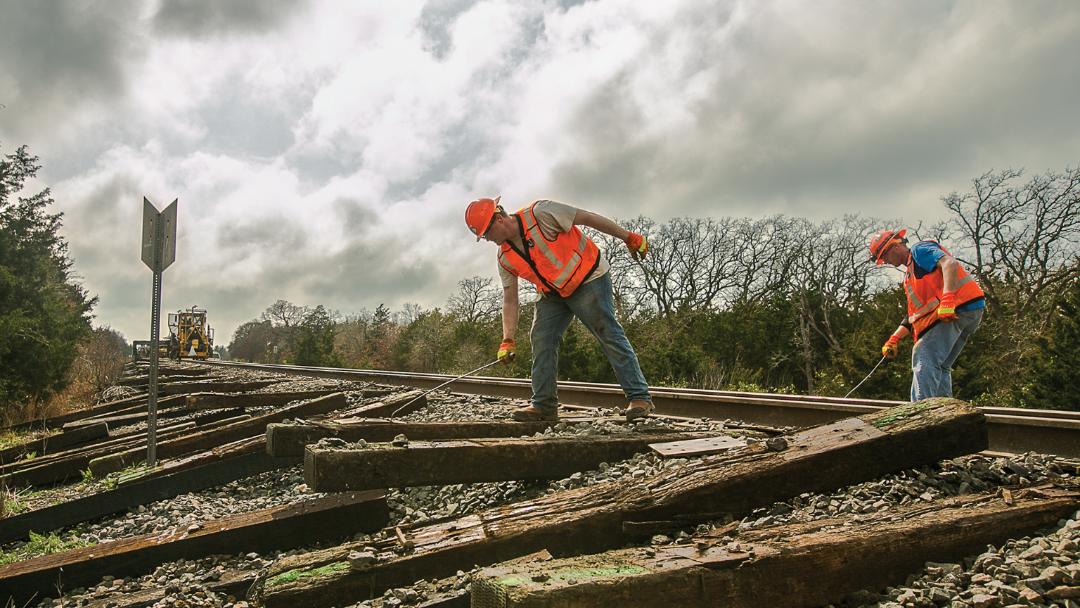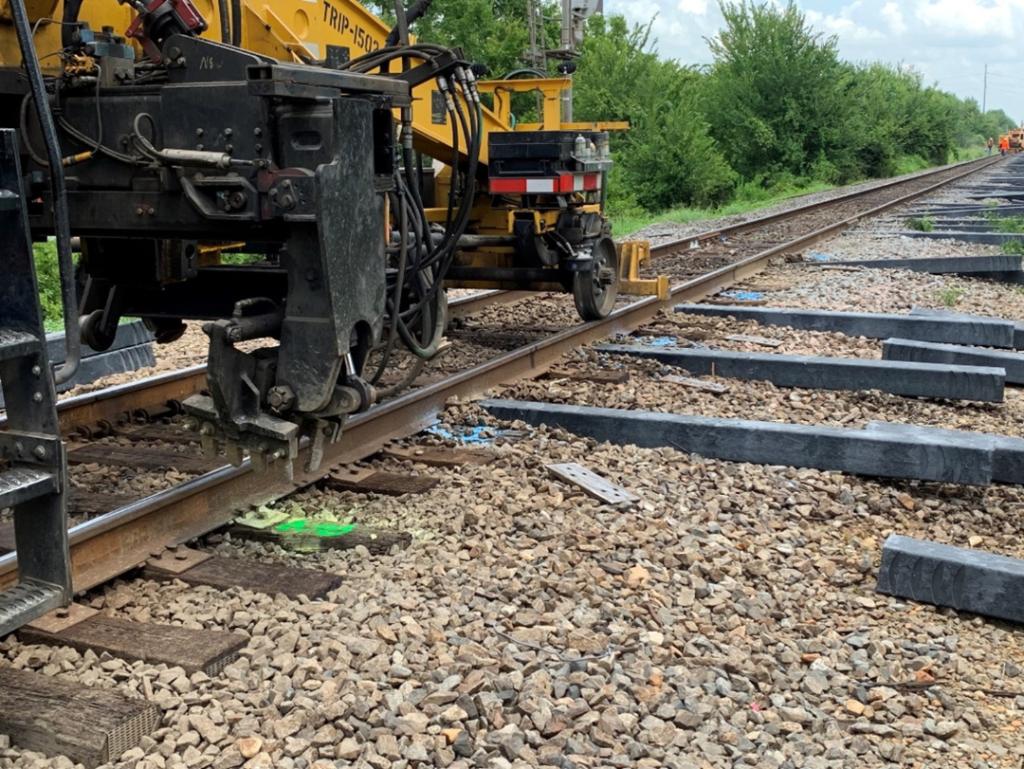Rail ties are the backbone of the railroad, holding rail in place. As part of its work to strengthen its infrastructure and protect communities, Union Pacific Engineering employees have replaced over 3 million rail ties this year alone.

Many of the ties being replaced will be used for decades, thanks to a recent investment in recyclable rail ties made from composite materials.
These composite ties are being installed in areas where the average wood tie lifespan is eight to 15 years due to decay associated with heat, humidity and subgrade, compared to other areas of the railroad where wood tie life averages 25 years. Vendors manufacture composite ties to meet Union Pacific’s specifications, which are designed to achieve a 50-year lifespan.
“Unlike wood ties, composite ties have the option to be recycled or repurposed at the end of their lifespan,” said Dave Bozarth, senior manager-Engineering Method & Research. “Next year, Union Pacific is looking to double the number of composite ties installations in 2023 and continue evaluating long-lasting products.”

For every million composite ties laid, 90,000 tons of plastic are diverted from landfills.
“We’re creating a safer railroad for our customers and demonstrating our commitment to reaching our sustainability goals,” said Aimee Severa, manager-Asset Disposition. “Using composite ties also allows us to provide more reliable service by reducing the amount of track replacement work needed.”
New composite ties will primarily be installed in humid climate areas. In November, Evertrak’s ties were installed around Little Rock, Arkansas, St. Louis, Missouri, Fort Worth, Texas and near Reno, Nevada, as well as on a handful of bridges.






